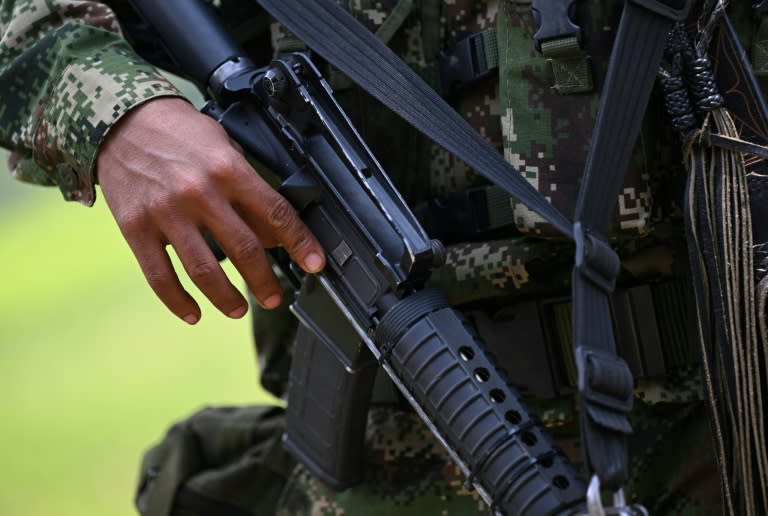Colombia starts talks with a third guerrilla group

The Colombian government on Monday began peace negotiations with a rebel group that broke away from a historic 2016 ceasefire deal with FARC guerillas, according to a joint statement between parties.
The talks are the third launched under leftist president Gustavo Petro, who has faced multiple obstacles in his efforts to end six decades of conflict between security forces, guerrillas, right-wing paramilitaries and drug gangs.
In the latest effort, Bogota is seeking peace with a FARC breakaway faction known as Segunda Marquetalia, which, according to military intelligence, has around 1,600 members.
The group's leader, known under the alias Ivan Marquez, was the chief FARC negotiator for the 2016 deal, returned to civilian life and was elected a senator, before launching a new rebellion in 2019.
Thought to be dead, he reappeared in a video in May expressing his support for Petro, after his group agreed to resume talks.
Marquez -- whose real name is Luciano Marin -- said at the opening of talks in Venezuela's capital that he was "fully willing to contribute to the common achievement of peace for Colombia."
This first round of discussions, which will see seven delegates from either side establishing the protocols for the negotiation process, will take place until Saturday.
The Colombian government has since 2022 been involved in stop-start talks with the Marxist National Liberation Army (ELN) -- responsible for the kidnapping last October of the father of Liverpool footballer Luis Diaz.
In October 2023, talks began with the main FARC dissident group, the EMC, which have been plagued by ceasefire violations and a major split in the group in April, which saw half of its fighters abandon peace negotiations.
Rights groups accuse guerrillas in Colombia of taking advantage of various ceasefires to expand their influence by seizing more territory and recruiting new members.
"We have to look at the conflicts that exist now in a transparent way, without the pretense that we know something about peace," said Otty Patino, Colombia's High Commissioner for Peace.
According to a report by the International Committee of the Red Cross published in April, clashes between armed groups have intensified and civilians are "paying the price."
jt/fb/md

 Yahoo News
Yahoo News 
